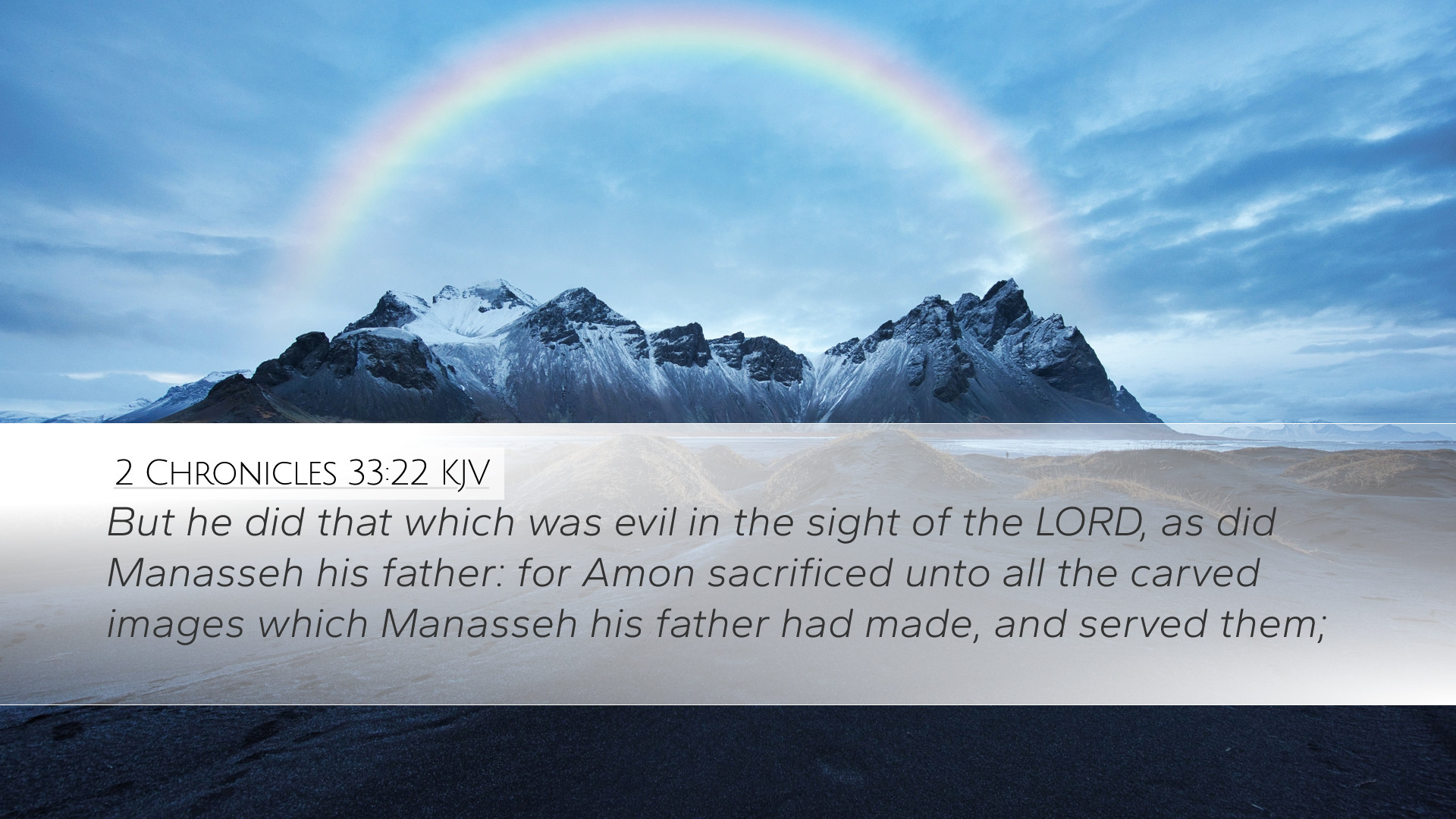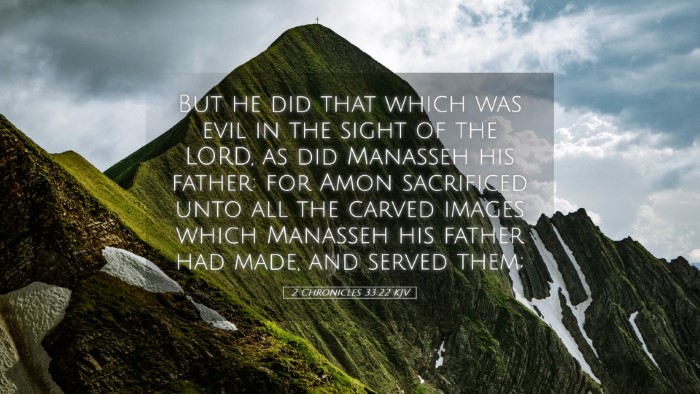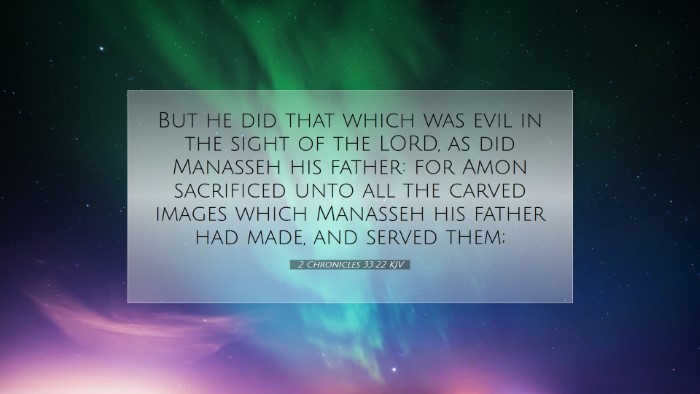Commentary on 2 Chronicles 33:22
Verse: "But he did that which was evil in the sight of the Lord, as did Manasseh his father: for he sacrificed unto all the carved images which Manasseh had made."
Introduction
The verse 2 Chronicles 33:22 provides insight into the actions of Amon, the son of Manasseh, who followed in his father's footsteps in pursuing idolatry and evil practices. This commentary synthesizes insights from various public domain sources to explore the implications of this passage and its relevance for contemporary believers.
Contextual Background
Amon ascended to the throne of Judah after the death of his father Manasseh, who had a notorious reputation for his idolatrous practices and sinfulness against the Lord. Understanding this context is crucial as we analyze Amon's choices.
Historical Context
Manasseh, despite eventually turning back to God, led Judah into deep sin and idolatry. Amon's short reign, detailed in 2 Chronicles 33:21-25, shows he did not repent but rather engaged in the same sinful behaviors, suggesting a continuation of a cycle of disobedience in the nation.
Thematic Analysis
This passage emphasizes themes of legacy, choice, and divine judgment. The actions of Amon serve as a warning to leaders and followers alike regarding the impact of familial influence and the seriousness of leading others toward or away from God.
Legacy of Sin
Matthew Henry points out that Amon did not only imitate his father's wrongdoings but amplified them, which demonstrates how the sins of previous generations can manifest in subsequent ones. This calls attention to the responsibility that parents have in shaping the spiritual lives of their children.
Personal Choice and Accountability
Albert Barnes emphasizes that, although Amon came from a legacy of idolatry, he possessed the same free will to choose differently. His decision to follow evil despite knowing the consequences reflects a disregard for spiritual truth and disobedience to God’s commandments.
Divine Judgment
Adam Clarke notes that the severity of divine judgment is befitting the actions of Amon. The phrase "in the sight of the Lord" denotes the awareness of God’s omnipresence and the seriousness of sin against His holiness. This highlights the gravity of disobedience and its repercussions not only for individuals but also for broader communities.
Theological Implications
This passage serves as a reminder of God's holiness and the existence of idolatry in the heart of humanity. It challenges readers to examine their lives and the influences they allow from their surroundings.
Idolatry in Contemporary Life
- Definition of Idolatry: Idolatry is not limited to physical idols but includes anything that takes precedence over God in one’s life.
- Contemporary Examples: Possessions, relationships, or ideologies may serve as modern idols diverting attention away from the worship of the true God.
- Spiritual Consequences: As Amon's story illustrates, engaging in idolatry leads not only to personal downfall but also potential consequences for communities and nations as a whole.
The Role of Leaders
Leaders, in particular, are cautioned by Amon's example. The trajectory of Amon’s leadership leads to a deeper understanding of the weighty responsibilities leaders bear.
- Influence of Leadership: Leaders like Amon can either guide their communities towards righteousness or contribute to their downfall, an essential aspect for churches and organizations today.
- Call for Repentance: Amon’s failure to repent serves as a crucial point for leaders today to recognize the necessity of humility, acknowledgment of sin, and continual realignment with God’s will.
Conclusion
In concluding remarks, 2 Chronicles 33:22 not only reveals the perilous legacy of sin and idolatry but also serves as a crucial reminder of the choices we face in our spiritual lives. The example of Amon warns against complacency in faith and highlights the importance of leading with integrity. For pastors, students, theologians, and Bible scholars, this passage invites deep reflection on the influences that shape our lives and those we lead.
Final Reflections
As we reflect on the lessons of Amon, let us examine our hearts for any forms of idolatry, consider the legacies we are creating, and commit to making choices that align with God’s purposes for our lives. Only then will we bear witness to the transformative power of a faith that turns away from evil and seeks after God's heart.


